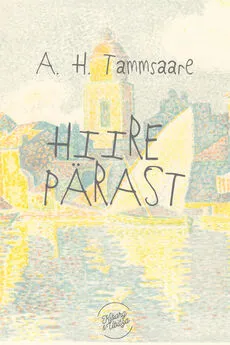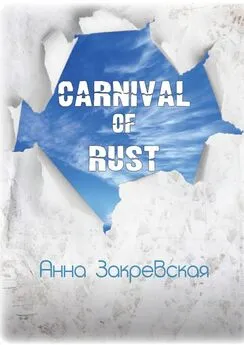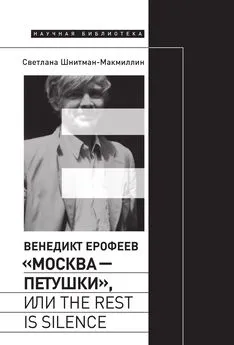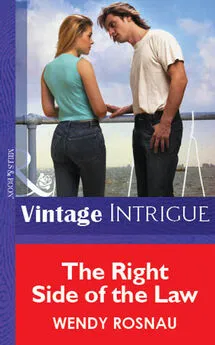W. Ainsworth - Rookwood
- Название:Rookwood
- Автор:
- Жанр:
- Издательство:неизвестно
- Год:неизвестен
- ISBN:нет данных
- Рейтинг:
- Избранное:Добавить в избранное
-
Отзывы:
-
Ваша оценка:
W. Ainsworth - Rookwood краткое содержание
Rookwood - читать онлайн бесплатно полную версию (весь текст целиком)
Интервал:
Закладка:
The gipsies, after the first fire, threw aside their pistols, and fought with long knives, with which they inflicted desperate gashes, both on men and horses. Major Mowbray was slightly wounded in the thigh, and his steed receiving the blow intended for himself, stumbled, and threw his rider. Luckily for the major, Ranulph Rookwood was at hand, and with the butt-end of a heavy-handled pistol felled the ruffian to the earth, just as he was upon the point of repeating the thrust.
Turpin, meanwhile, had taken comparatively a small share in the conflict. He seemed to content himself with acting upon the defensive, and, except in the case of Titus Tyrconnel, whom, espying amidst the crowd, he had considerably alarmed by sending a bullet through his wig, he did not fire a single shot. He also succeeded in unhorsing Coates, by hurling, with great dexterity, the empty pistol at his head. Though apparently unconcerned in the skirmish, he did not flinch from it, but kept his ground unyieldingly. "A charmed life" he seemed to bear; for amid the shower of bullets, many of which were especially aimed at himself, he came off unhurt.
"He that's born to be hanged will never be drowned, that's certain," said Titus. "It's no use trying to bring him down. But by Jasus! he's spoiled my best hat and wig, anyhow. There's a hole in my beaver as big as a crown piece."
"Your own crown's safe, and that's some satisfaction," said Coates; "whereas mine has a bump on it as big as a swan's egg. Ah! if we could only get behind him."
The strife continued to rage without intermission; and though there were now several ghastly evidences of its fury, in the shape of wounded men and slaughtered and disabled horses, whose gaping wounds flooded the turf with gore, it was still difficult to see upon which side victory would eventually declare herself. The gipsies, though by far the greater sufferers of the two, firmly maintained their ground. Drenched in the blood of the horses they had wounded, and brandishing their long knives, they presented a formidable and terrific appearance, the effect of which was not at all diminished by their wild yells and savage gesticulations.
On the other hand, headed by Major Mowbray and Ranulph, the troop of yeomen pressed on undauntedly; and where the sturdy farmers could get a firm gripe of their lithe antagonists, or deliver a blow with their ox-like fists, they seldom failed to make good the advantage which superior weight and strength gave them. It will thus be seen that as yet they were pretty well matched. Numbers were in favour of the gipsies, but courage was equally distributed, and, perhaps, what is emphatically called "bottom," was in favour of the rustics. Be this as it may, from what had already occurred, there was every prospect of a very serious termination to the fray.
From time to time Turpin glanced to the entrance of the cell, in the expectation of seeing Sir Luke Rookwood make his appearance; and, as he was constantly disappointed in his expectation, he could not conceal his chagrin. At length he resolved to despatch a messenger to him, and one of the crew accordingly departed upon this errand. He returned presently with a look of blank dismay.
In our hasty narrative of the fight we have not paused to particularise, neither have we enumerated, the list of the combatants. Amongst them, however, were Jerry Juniper, the knight of Malta, and Zoroaster. Excalibur, as may be conceived, had not been idle; but that trenchant blade had been shivered by Ranulph Rookwood in the early stage of the business, and the knight left weaponless. Zoroaster, who was not merely a worshipper of fire, but a thorough milling-cove, had engaged to some purpose in a pugilistic encounter with the rustics; and, having fought several rounds, now "bore his blushing honours thick upon him."
Jerry, like Turpin, had remained tolerably quiescent. "The proper moment," he said, "had not arrived." A fatality seemed to attend Turpin's immediate companions. Rust was the first who fell; Wilder also was now among the slain. Things were precisely in this condition when the messenger returned. A marked change was instantly perceptible in Turpin's manner. He no longer looked on with indifference. He seemed angry and distrustful. He gnawed his lip, ever a sign with him of vexation. Addressing a few words to those about him, he then spoke more loudly to the rest of the crew. Being in the jargon of the tawny tribe, his words were not intelligible to the opposite party; but their import was soon made known by the almost instant and total relinquishment of the field by the gipsies. They took to their heels at once, to a man, leaving only a few desperately wounded behind them; and, flying along the intricate ruins of the priory, baffled all pursuit, wherever it was attempted. Jerry Juniper was the last in the retreat; but, upon receiving a hint from Dick, he vaulted like a roe over the heads of his adversaries, and made good his escape. Turpin alone remained. He stood like a lion at bay, quietly regarding the huntsmen hurtling around him. Ranulph Rookwood rode up and bade him surrender.
"Detain me not," cried he, in a voice of thunder. "If you would save her who is dear to you, descend into that vault. Off, I say."
And Turpin shook away, with ease, the grasp that Ranulph had laid upon him.
"Villain, you do not escape me this time," said Major Mowbray, interposing himself between Turpin and the outlet.
"Major Mowbray, I would not have your blood upon my head," said Dick. "Let me pass." And he levelled a pistol.
"Fire, if you dare!" said the major, raising his sword. "You pass not. I will die rather than allow you to escape. Barricade the door. Strike him down if he attempts to pass. Richard Turpin, I arrest you in the King's name. You hear, my lads, in His Majesty's name. I command you to assist me in this highwayman's capture. Two hundred pounds for his head."
"Two hundred devils!" exclaimed Dick, with a laugh of disdain. "Go, seek your mother and sister within yon vault, Major Mowbray; you will find employment enough there."
Saying which, he suddenly forced Bess to back a few yards; then, striking his heels sharply into her sides, ere his purpose could be divined by the spectators, charged, and cleared the lower part of the mouldering priory walls. The feat was apparently accomplished with no great effort by his admirable and unequalled mare.
"By the powers!" cried Titus, "and he's given us the slip after all. And just when we thought to make sure of him, too. Why, Mr. Coates, that wall must be higher than a five-barred gate, or any stone wall in my own country. It's just the most extraordinary lepp I ever set eyes on!"
"The devil's in the fellow, certainly, or in his mare," returned Coates; "but if he escapes me, I'll forgive him. I know whither he's bound. He's off to London with my bill of exchange. I'll be up with him. I'll track him like a bloodhound, slowly and surely, as my father the thief-taker used to follow up a scent. Recollect the hare and the tortoise. The race is not always to the swift. What say you? 'Tis a match for five hundred pounds; nay, for five thousand: for there is a certain marriage certificate in the way—a glorious golden venture! You shall go halves, if we win. We'll have him, dead or alive. What say you for London, Mr. Tyrconnel? Shall we stair at once."
"With all my sowl ," replied Titus. "I'm with you." And away this par nobile scoured.
Ranulph, meantime, plunged into the vault. The floor was slippery, and he had nigh stumbled. Loud and deep lamentations, and a wailing sound, like that of a lament for the dead, resounded in his ears. A light at the further extremity of the vault attracted his attention. He was filled with terrible forebodings; but the worst reality was not so terrible as suspense. He rushed towards the light. He passed the massive pillars, and there, by the ruddy torch flame, discovered two female figures. One was an old woman, fantastically attired, wringing her hands, and moaning, or gibbering wild strains in broken, discordant, yet pathetic tones. The other was Mrs. Mowbray. Both were images of despair. Before them lay some motionless object. He noticed not that old woman; he scarcely saw Mrs. Mowbray; he beheld only that object of horror. It was the lifeless body of a female. The light fell imperfectly upon the face; he could not discern the features, but the veil in which it was swathed: that veil was Eleanor's! He asked no more.
With a wild cry he rushed forward. "Eleanor, my beloved," shrieked he.
Mrs. Mowbray started at his voice, but appeared stunned and helpless.
"She is dead," said Ranulph, stooping towards the body. "Dead—dead!"
"Ay," echoed the old woman, in accents of equal anguish—"dead—dead!"
"But this is not Eleanor," exclaimed he, as he viewed the features more closely. "This face, though beautiful, is not hers. This dishevelled hair is black. The long lashes that shade her cheek are of the same hue. She is scarce dead. The hand I clasp is yet warm—the fingers are pliant."
"Yet she is dead," said the old woman, in a broken voice. "She is slain."
"Who hath slain her?" asked Ranulph.
"I—I—her mother, slew her."
"You!" exclaimed Ranulph, horror-stricken. "And where is Eleanor?" asked he. "Was she not here?"
"Better she were here now, even though she were as that poor maid," groaned Mrs. Mowbray, "than where she is."
"Where is she, then?" asked Ranulph, with frantic eagerness.
"Fled. Whither I know not."
"With whom?"
"With Sir Luke Rookwood—with Alan Rookwood. They have borne her hence. Ranulph, you are too late."
"Gone!" cried Ranulph, fiercely springing to his feet. "How escaped they? There appears to be but one entrance to this vault. I will search each nook and cranny."
"'Tis vain," replied Mrs. Mowbray. "There is another outlet through yon cell. By that passage they escaped."
"Too true, too true," shouted Ranulph, who flew to examine the cell. "And wherefore followed you not?"
"The stone rolled to its mouth, and resisted my efforts. I could not follow."
"Torture and death! She is lost to me for ever!" cried Ranulph, bitterly.
"No," exclaimed Barbara, clutching his arm. "Place your trust in me, and I will find her for you."
"You!" ejaculated Ranulph.
"Even I," replied Barbara. "Your wrongs shall be righted—my Sybil be avenged."
| Contents |
"Bess charged and cleared the lower part of the mouldering priory walls."
BOOK IV
THE RIDE TO YORK
Then one halloo, boys! one loud cheering halloo
To the swiftest of coursers, the gallant, the true!
For the sportsman unborn shall the memory bless
Of the horse of the highwayman, bonny black Bess!
—RICHARD TURPIN
CHAPTER I
THE RENDEZVOUS AT KILBURN
THE present straggling suburb at the north-west of the metropolis, known as Kilburn, had scarcely been called into existence a century ago, and an ancient hostel, with a few detached farmhouses, were the sole habitations to be found in the present populous vicinage. The place of refreshment for the ruralising cockney of 1737 was a substantial-looking tenement of the good old stamp, with great bay windows, and a balcony in front, bearing as its ensign the jovial visage of the lusty knight Jack Falstaff. Shaded by a spreading elm, a circular bench embraced the aged trunk of the tree, sufficiently tempting, no doubt, to incline the wanderer on those dusty ways to "rest and be thankful," and to cry encore to a frothing tankard of the best ale to be obtained within the chimes of Bow Bells.
Upon a table, green as the privet and holly that formed the walls of the bower in which it was placed, stood a great china bowl, one of those leviathan memorials of bygone wassailry which we may sometimes espy (reversed, in token of its desuetude) perched on the top of an old japanned closet, but seldom, if ever, encounter in its proper position at the genial board. All the appliances of festivity were at hand. Pipes and rummers strewed the board. Perfume, subtle yet mellow, as of pine and lime, exhaled from out the bowl, and, mingling with the scent of a neighbouring bed of mignonette, and the subdued odour of the Indian weed, formed altogether as delectable an atmosphere of sweets as one could wish to inhale on a melting August afternoon. So, at least, thought the inmates of the arbour; nor did they by any means confine themselves to the gratification of a single sense. The ambrosial contents of the china bowl proved as delicious to the taste as its bouquet was grateful to the smell; while the eyesight was soothed by reposing on the smooth sward of a bowling-green spread out immediately before it, or in dwelling upon gently undulating meads, terminating, at about a mile's distance, in the woody, spire-crowned heights of Hampstead.
Читать дальшеИнтервал:
Закладка:




![Rakot - Апостол Новой Веры. Том 1 [СИ]](/books/1061842/rakot-apostol-novoj-very-tom-1-si.webp)
![Rakot - Укуренный мир. Том 3 [СИ]](/books/1073038/rakot-ukurennyj-mir-tom-3-si.webp)




